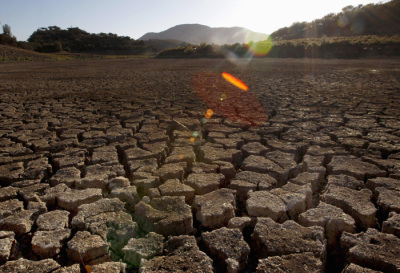What's Important About World Soil Day

It ain't just dirt.
Playing in the dirt is typically reserved for young children and pigs. But getting down and dirty is more important than you might think. It is estimated that 95 percent of our food is directly or indirectly produced on our soils. This includes everything from grains such as wheat and rice to vegetables and fruits and even the meat and dairy animals that depend upon soil-grown plants for their food too. Healthy soils produce healthy plants which help feed healthier humans.
Soils serve many purposes. They act as the medium that supports the physical structure of the plant by anchoring the roots in place. They contain nutrients and organic matter that feed the plants helping them grow. And they act as a sponge holding water for the roots to absorb and hydrate the plant. Without these three essential services, the majority of plant life would not be possible. While some modern farmers are moving towards hydroponic gardening (the practice of growing plants suspended in nutrient-rich water or some other alternative, soil-less medium), agriculture is still dependent upon the natural methods of growing in the ground.
Picture the stereotypical farm with wide-open fields freshly plowed into rows, livestock wandering around a lush paddock, an orchard of fruit trees neatly lining the edges, and a red barn storing the recently harvested produce and implements for the farm work. Everything in this picture is tied to the soil. The plow turns the soil up for planting the seeds. The chickens peck at bugs crawling around in the soil. The cows eat the grass growing up from the soil and drop manure to fertilize it. The roots of the fruit trees dig deep into the soil holding it firmly in place. The barn is full of crops grown in the soil and stores piles of compost to improve the soil's fertility.
Unfortunately, this picturesque image is less common in the developing world. Forests are cut down to make way for more farmland which quickly loses its fertility. Grazing pastures are eaten down to nothing exposing the bare soil. Seasonal rains wash away the topsoil that is no longer held in place by any root system. The fields become barren and rocky as the ability to grow plants becomes less possible. Many underdeveloped countries, which once were ripe with agricultural produce are now forced to import food for their own consumption because they have lost their ability to be self-sustaining.
Haiti is the prime example of this fall from agricultural glory. Once a pristine, tropical rainforest island country, Haiti's border is now visible from the air as the deforestation clearly delineates where Haiti ends and the Dominican Republic begins. The Thomazeau region where LiveBeyond works has more cactus and desert shrub brush than any other plant type. Boulders dominate the landscape, and any farmland must be endlessly cleared of rocky rubble before any soil can be found to plant a seed in. The mountains overlooking Thomazeau have hardly any trees along the bare slopes. And with every hurricane, there is less and less soil available for farming.
While this sounds hopeless, there are solutions. Refortifying the soil and protecting it with reforestation are long-term programs that must be a high priority. LiveBeyond is working towards these ends primarily through education. Every day, farmers come to LiveBeyond's 25-acre demonstration farm to learn appropriate agriculture techniques. LiveBeyond teaches compost production, mulching, soil-retention, and terracing through agro-forestry. Slowly, the hillsides are sprouting more trees, mostly Moringa olefeira, which are fast-growing, drought and disease resistant, highly nutritious trees. LiveBeyond has trained the farmers to plant them close together in lines following the contours of the hillsides and over time the trees will naturally terrace the slopes, catching the soil as it washes away in the rains, and holding the soils in place through their vast root systems. Additionally, refortifying the soil through compost is key to maintaining and improving the productivity of farms in the area. What soil there is left has been depleted of its nutrients over the years and needs to be built back up. Compost not only provides the needed nutrients but adds organic material to the soil which helps with moisture retention, erosion control and long-term soil health.
LiveBeyond is not alone in this drive to reforest Haiti. Organizations such as The Eden Reforestation Project and The Haiti Tree Project are both working to plant more trees along the slopes of Haiti's beautiful mountains. The Haiti Tree Project has nurseries where they grow trees for villages to plant themselves and care for in a community-wide responsible manner. The Eden Reforestation Project estimates that only 2 percent of Haiti's natural forests remain and so they are committed to helping communities replant their forests and subsequently save their soils. Preserving our soils is not an easy problem to tackle and it will require the combined efforts of many groups working hand-in-hand with the local communities to ensure a healthy future.
LiveBeyond has the ability to plant trees in your name along the mountain slopes of Thomazeau. Our soils are important and we all need to get down and dirty to ensure their survival.
David Vanderpool is the Director of Agriculture for LiveBeyond, a faith-based humanitarian non-profit specializing in disaster response and focused on transforming the nation of Haiti with sustainable solutions. For more information, visit www.livebeyond.org.





















